Bankruptcy filings are surging across the US, with the commercial trucking industry caught in the crosscurrents of a challenging economic environment.
Understanding how bankruptcies affect you (and how to protect yourself in the event of one) has never been more important. From repossession risks to legal strategies, we’ll show you how to navigate the turbulence and stay in control.
Why Are Bankruptcies Surging in 2025?
Bankruptcy is back in the headlines, and this time it’s hitting the freight and transportation sectors.
According to recent data, total bankruptcy filings in the US are up more than 10% year-over-year. Perhaps more concerning, Chapter 11 filings (a type of bankruptcy filing used by businesses seeking to restructure their debts) rose 62% in just one month (May 2025).
What does that mean for truckers?
Simply put, the financial headwinds in this economy are making it harder for many small and midsize carriers to stay afloat. Bankruptcy has become a last-ditch strategy to reorganize, liquidate, or buy time, but it doesn’t just affect the company filing.
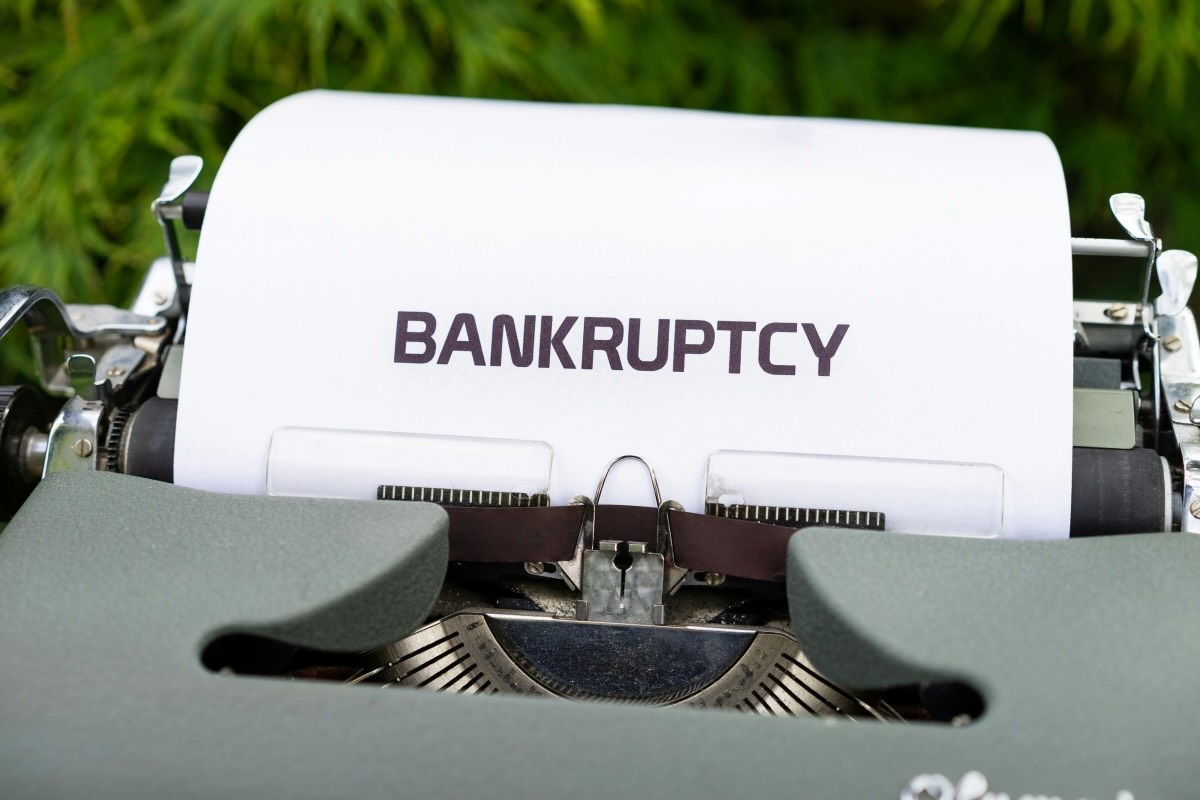
Key Drivers: Inflation, Interest Rates, and Market Instability
One of the primary drivers of trucking bankruptcies in 2025 is the so-called “Great Freight Recession.”
On one hand, shippers are moving fewer goods. On the other, the industry has too much capacity, with trucks and drivers sitting idle or hauling freight at unprofitable rates.
This oversupply isn’t temporary. Companies quickly expanded during the COVID freight boom, adding trucks and drivers. As demand normalized, those assets became liabilities.
Today, many operators are still locked into high equipment payments or leases they secured when rates were sky-high, and they can’t generate enough income to cover them.
Beyond freight rates and capacity issues, the larger economic picture plays a critical role. Inflation continues to drive up the cost of everything from tires to insurance premiums. Operating costs, which are already high in the trucking business, are becoming even more burdensome.
Interest rates have also remained elevated, making borrowing more expensive. For small fleet owners trying to refinance or secure working capital, that means tighter cash flow and limited access to affordable credit.
Meanwhile, geopolitical tensions and supply chain disruptions add uncertainty, creating a volatile environment that hinders long-term planning. Truckers who were already operating on thin margins now find themselves squeezed from all sides.
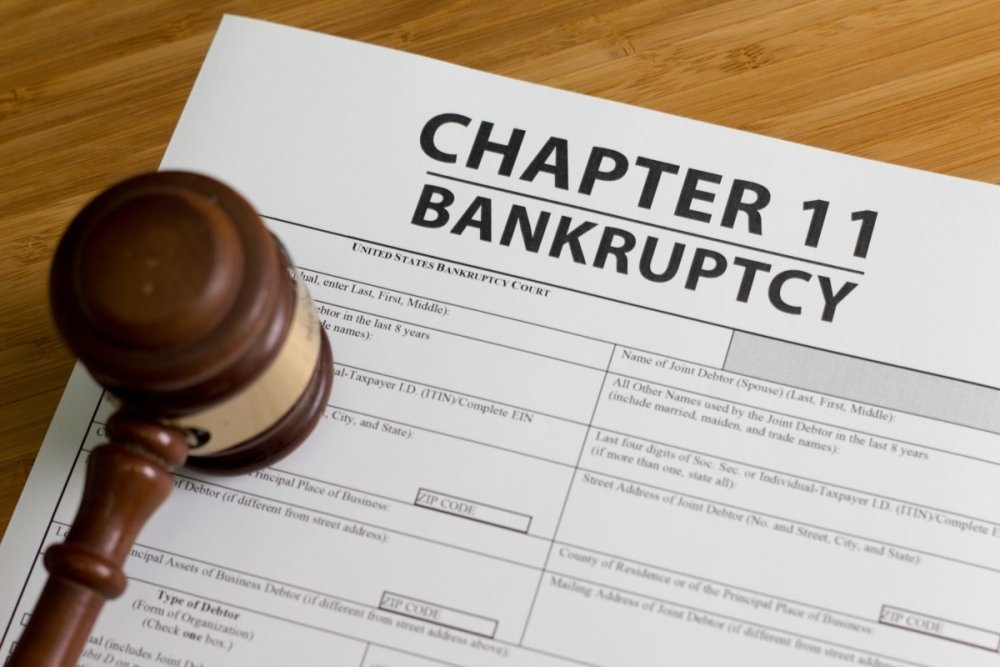
What Bankruptcy Means for Independent Truckers and Small Fleets
When a trucking company files for bankruptcy, the consequences don’t stop at the company’s front door. They ripple out to every connected party, especially lenders, equipment lessors, and individual truckers who depend on financing to stay on the road.
How Bankruptcies Affect Financing Options
In stable times, lenders offer decent terms, quick approvals, and manageable requirements. But today, those terms are tightening.
Bankruptcies make lenders cautious. They’re looking harder at credit profiles, business plans, and cash flow. For first-time buyers or those with poor credit, it may be harder to get approved.
Some lenders are stepping back from trucking altogether. Others are adding new requirements or raising interest rates to manage risk.
Repossession Risks and Collateral Loss
Most truck loans and leases are secured. That means your rig is the collateral. If you miss payments, the lender has the legal right to repossess the vehicle.
But repossession is expensive and time-consuming for lenders. Most would rather find a way to keep you operating if they believe the loan can still be paid.
That said, if you or someone connected to your revenue stream goes bankrupt, lenders may decide that recovery is the safest option. And if your loan is already on shaky ground, they may act to protect their asset.
Creditors’ Rights in Bankruptcy: What Every Trucker Should Understand
When bankruptcy proceedings begin, everyone wants to know the same thing: who gets paid, in what order, and what happens to any collateral. Understanding how creditor rights work can protect your equipment, your money, and your future.

What Is a Secured vs. Unsecured Creditor?
In bankruptcy cases, creditors are treated differently based on collateral. A secured creditor has a legal claim to specific assets, like your truck or trailer. If the borrower defaults, the lender can repossess the asset to recover their loss.
An unsecured creditor has no collateral. They’re usually last in line for repayment. This includes repair shops, fuel suppliers, or anyone owed money without a lien or contract.
If you financed your truck, your lender is almost certainly secured. That means they have more legal options if you miss payments or file for bankruptcy.
However, if you extend credit to another driver (such as letting them use your truck or delaying a payment), you may be considered unsecured unless you have filed a lien.
Understanding Lease Agreements and Recovery Options
Leasing a truck instead of buying can lower upfront costs. But it comes with rules that are important in bankruptcy situations.
If you’re leasing equipment from someone else and they file for bankruptcy, your ability to keep using that truck depends on the lease type:
- True lease: The lessor owns the truck. If you fall behind on payments, they may be allowed to take it back.
- Finance lease: The lease acts more like a loan. You may be required to keep paying, even during bankruptcy.
If you file for bankruptcy, your lessor must follow legal steps before repossessing the truck, including court approval. Lease agreements specify what happens if you miss a payment. Look for terms like default, termination, and recovery. These explain your rights and how much time you have to fix a problem.
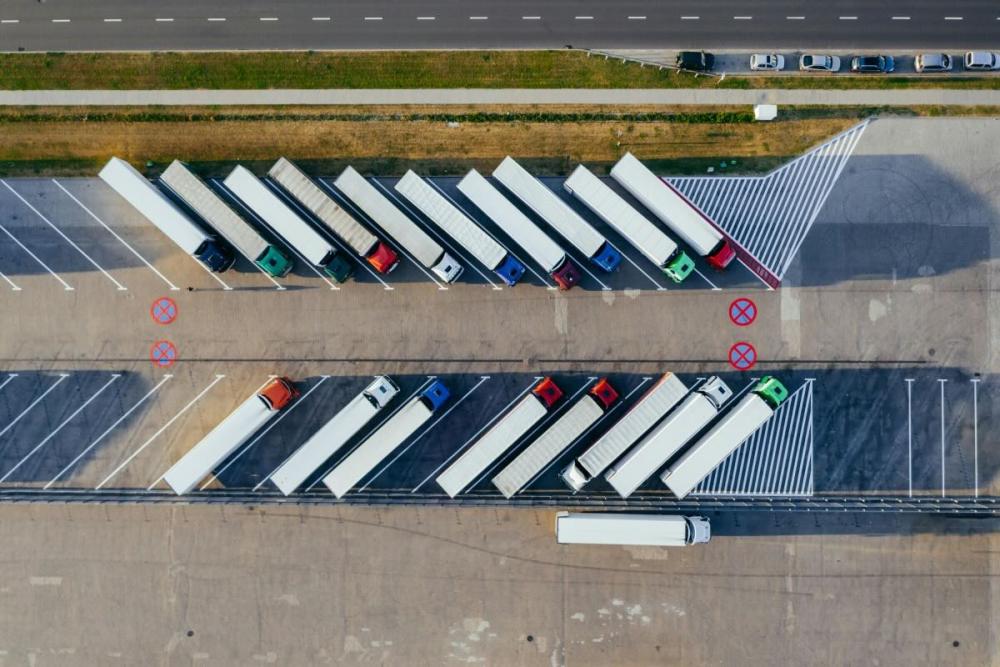
Protecting Your Equipment and Credit During Bankruptcy Negotiations
Whether it’s your business or a key partner entering Chapter 11, knowing how to respond to bankruptcy can help you hold onto your commercial truck, protect your credit, and stay in business.
Why “Adequate Assurance” Matters
In bankruptcy cases, lenders can ask for something called adequate assurance. It’s a legal term, but the meaning is simple: they want proof that you can keep up with your obligations after filing.
Your lender may want to see:
- Steady income from hauling contracts
- Active trucking insurance coverage on your equipment
- A payment plan that shows how you’ll stay consistent
If you can’t provide that assurance, the lender may ask the court for permission to repossess your commercial truck, even if you’re in bankruptcy.
The Role of Legal Guidance
Bankruptcy laws are complex. Add trucking finance into the mix, and it’s easy to get overwhelmed. A qualified attorney can help you understand your agreements, protect your rights, and negotiate with lenders the right way.
And if another company owes you money and files for bankruptcy, a lawyer can tell you whether it’s worth filing a claim or joining a creditors committee.
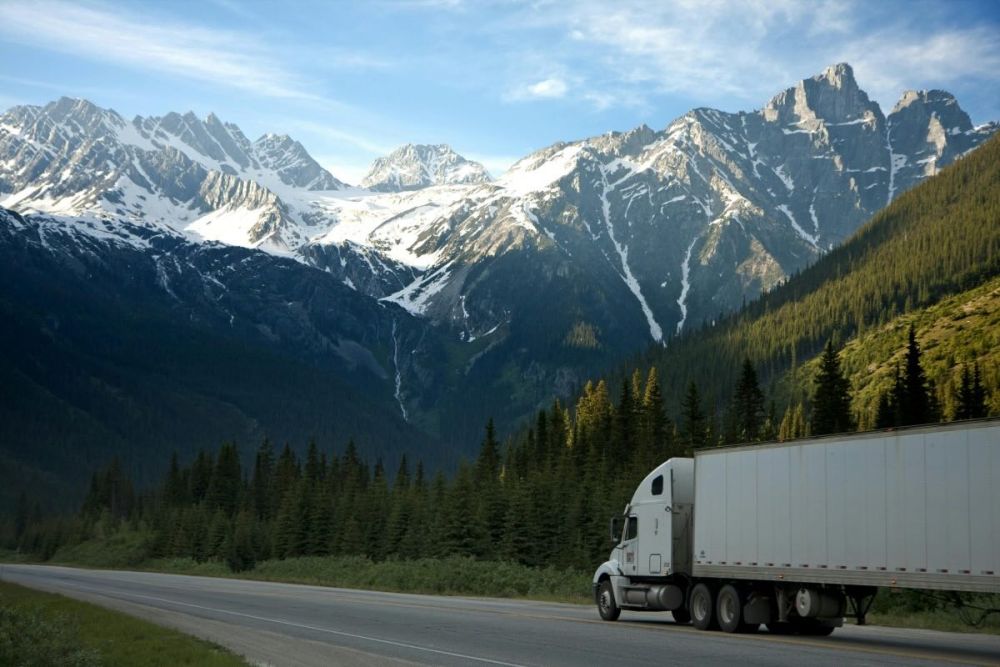
Large Claims and the Creditors Committee: What It Means for Lenders and Operators
When a company files for Chapter 11, multiple parties may be owed money, including lenders, equipment lessors, and sometimes even other truckers. In cases involving large claims, unsecured creditors can form a committee to represent their interests during the bankruptcy process.
While most small operators won’t qualify to join these committees, if you’re owed a significant amount (for example, unpaid freight from a broker), you may benefit from tracking the committee’s filings and updates. It can offer insight into how the case is moving and whether recovery is likely.
For those leasing or financing trucks, collateral tracking becomes critical once bankruptcy is in play. Lenders may need to monitor where the commercial truck is, whether it’s insured, and if it’s being used properly. Courts expect responsible oversight, not sudden repossession, so lenders often rely on clear, consistent communication from borrowers.
If you’re struggling but still operating, be transparent with your lender. Let them know the truck’s condition and explain how you’re continuing to generate income. This kind of communication can reduce the risk of repossession and help preserve access to future financing.
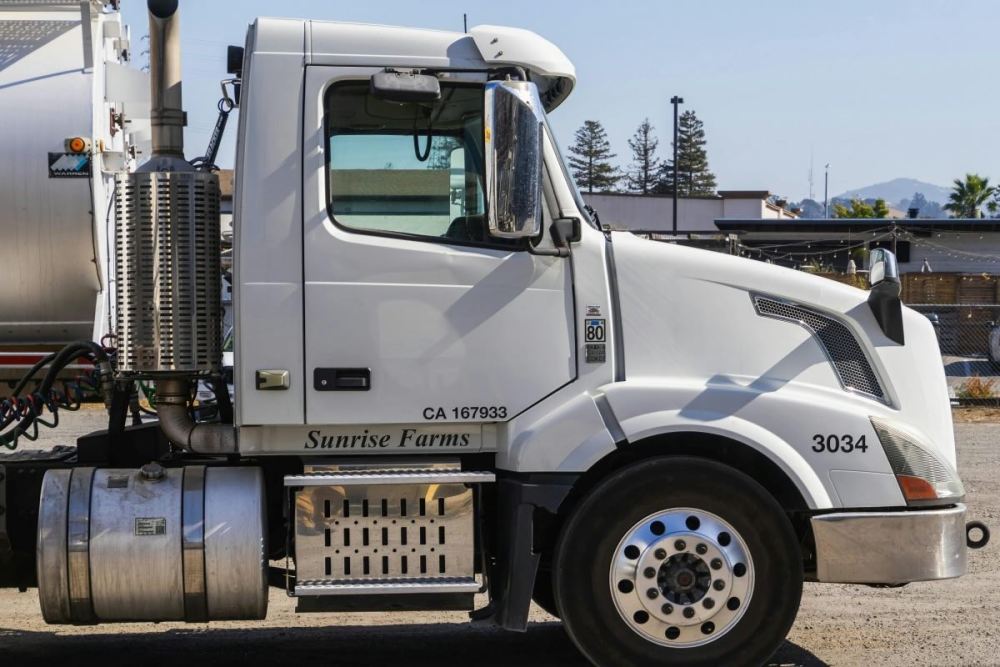
Staying Financially Resilient in a Shifting Market
Financial resilience is less about luck and more about preparation. While you can’t control the market, you can take smart steps to protect your business and stay ahead of financial trouble:
- Watch the trends: Keep tabs on freight rates, fuel costs, and bankruptcy filings. A quick weekly scan of industry updates can help you stay ahead of sudden changes.
- Know your loan terms: Review your lease or loan documents. Understand what happens if you miss a payment, how late fees work, and what triggers repossession.
- Organize your paperwork: Keep clear records of invoices, payments, maintenance, and trucking insurance. Solid documentation protects you if a dispute arises.
- Work with lenders who know trucking: A lender that understands your commercial truck business is more likely to offer flexibility and solutions when you need them.
- Speak up early: If you’re struggling, don’t wait. Contact your lender before things spiral. Being proactive often leads to better outcomes than going silent.
How Mission Financial Services Supports Independent Operators
At Mission Financial Services, we understand the realities of life on the road. That’s why we have built our lending options to reflect the unpredictability of the industry.
We say yes when others say no. Our programs are built for first-time buyers, drivers with bad credit, and those coming back from financial setbacks. When time matters, we move quickly; many of our loans are approved in as little as four hours, helping you get back to work without delays.
We also offer repair and title loans, so if your rig breaks down or you need quick capital, you don’t risk losing your equipment.
Most importantly, we treat our borrowers with respect. Whether you’re growing, rebuilding, or just trying to stay ahead, we’re here to listen, advise, and support your goals.
Conclusion
Bankruptcies are rising, and the road is undeniably rough for small fleet operators and independent truckers. But with the right knowledge, legal awareness, and financial partnerships, you’re not powerless.
Understanding how creditor rights work, what to expect in a bankruptcy scenario, and how to protect your rig and revenue is critical for long-term survival.
Mission Financial Services was built for truckers like you. We offer the flexibility, speed, and understanding you need not just to survive tough times, but to come out stronger on the other side.
The road may not always be smooth, but with the right financial partner, you don’t have to navigate it alone. Get in touch with us today.


